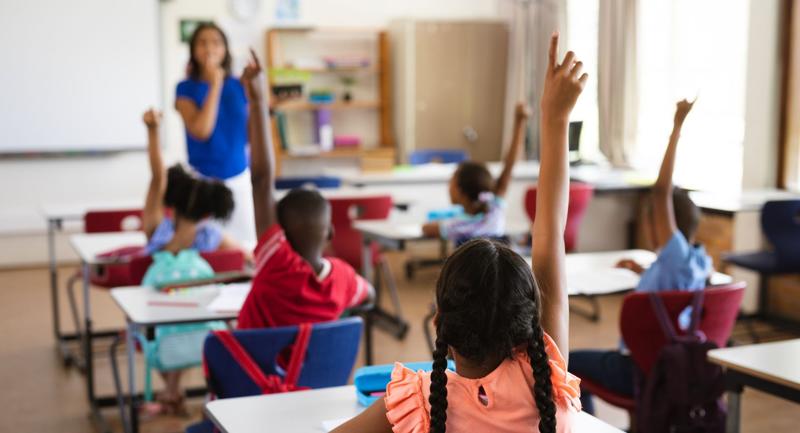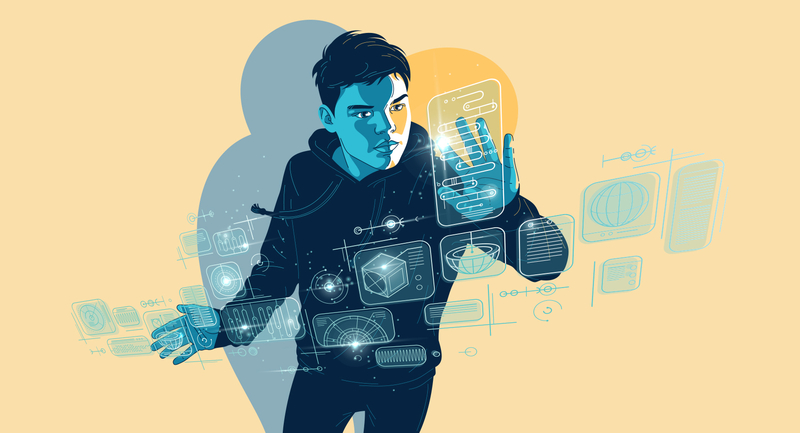"They think I'm a test score." In the opening scenes of journalist Paul Tough's latest book, a high school senior from the Bronx anxiously awaits the verdict of her Ivy League college applications. Her comment encapsulates how many young people feel about the application process. Tough, an expert on the conditions children need for success, visited homes, high schools, and colleges in 21 states to study the state of higher education. He encountered a selective system that caters to those in wealthier income brackets and creates roadblocks that exacerbate economic divides in adulthood.
In The Years That Matter Most: How College Makes or Breaks Us (Houghton Mifflin Harcourt), Tough looks at what barriers to workable pathways students face as they finish up high school. In an interview with ASCD, he discusses the implications of his findings for the teachers and caregivers guiding young people through school and the process toward an equalizing framework.
In a nutshell, what's wrong with higher education?
We have developed a system of higher education that is very stratified. The type of higher education you get is generally better if you come from a family with a lot of money. In K–12 education, there is at least the principle that we are trying to create a level playing field no matter where students are from or who they are or what their parents' background is. A lot of us don't think of higher education as a public good. We think of it as a consumer good where you get what you pay for. That paradigm makes it difficult to improve things.
You've spent the last decades researching what hinders and helps children's success. What surprised you most about the transition to young adulthood?
What surprised me was the degree to which the problems that are making higher education so inequitable have to do with systems that go way beyond the lives of any one student. It's about how we fund public education, how we organize institutions of higher education, how we admit and select students for those institutions. There are so many moving parts that tend to make things more difficult for low-income and first-generation students and the students who need that education the most.
How does high school students' experience with college access change based on family income or background?
The experience is different depending on where you live and your family background and what high school you go to. There are a lot of commonalities in terms of how poorly the higher education system serves low-income students [of any background]. But it's very clear in the data that students of color, Black, and Latinx students face additional obstacles to getting the kind of college education they deserve—from financial obstacles to a lack of encouragement in high school to implicit bias in admissions.
High school students who are aspiring to the most selective institutions (mostly well-off kids, but also some ambitious low-income kids) feel that there are very strict requirements for what kind of person they are supposed to be. They feel forced, in a lot of cases, to have the kind of high school experience that makes them appealing to a college admissions office, which affects the way colleges admit their students, what they value in a college application, SAT and ACT prep, the kinds of courses and extracurriculars students choose.
I also spent time with students who were not particularly great high school students but recognized that a high school degree was not going to enable them to achieve the basic building blocks of a middle-class life. As a country, we don't have a sensible process for those who want a credential beyond high school but don't want a four-year degree.
As you wrote this book, you spent time—sometimes years—with hundreds of students. What did you hear from them?
For the young people who were aspiring for highly selective institutions, what they wanted adults to understand was how stressful it was, how much their adolescences were being taken over by the process of jumping through these hoops. That was true for affluent kids I met in the suburbs of Washington, D.C., and it was true for the low-income kids I met from the Bronx. Their message is one of wanting to find another way to measure their abilities and value. For kids who are not aspiring to those types of institutions, they mostly just felt confused and wanted a better sense of why college would be a good thing for them. I think all of us have a kind of magical thinking when it comes to college on both sides of the partisan divide.
I write about this young woman named Kim in rural North Carolina whose family bought into these ideas that college was a waste of time and real opportunity came through manual labor or joining the Marines. But on the other side of the equation, there are people for whom college is this magical force where it's the one thing that could change your life. For young people who are hearing those messages, it can be bewildering because they have real decisions they need to make about whether and where they should go to college, how much they should pay, what kind of degree they should get. We [don't always give] students honest and accurate information about where their interests, resources, and skills would incline them.
What role do K–12 educators play in this process?
When I talk to K–12 (especially high school) educators, they often feel stressed out by this process as well. From kindergarten through 12th grade, there's a pretty orderly process—systems in place so you know what to do in 9th grade to prepare for 10th. But at the end of high school, graduates go off in different directions and need all types of preparation and advice. I think high school teachers feel this increased sense of responsibility to get it exactly right for those kids, to prepare them to be ready for what comes next—but it's very hard to know what the right way is, what type of preparation they need.
Do you have ideas for how we can shift mindsets to look at education as a collective benefit, rather than an individual one?
The shift since [the nation's] high school movement almost 100 years ago is not the fault or responsibility of a few individuals. It speaks to bigger ways that we as a country have reconceived what the public sphere means and the common good is. That we as a nation are not thinking collectively about our public education doesn't mean there aren't individual people doing a lot. One thing I've seen educators at the K–12 and higher education levels working on is trying to find a more seamless pathway, especially for the less academically inclined students, from high school to something—community college, public university, some credential. There are nonprofits like OneGoal or KIPP Through College as well as programs like early college high school, all of which are trying to make that boundary between high school and college more porous, so that we're doing more than just giving high school graduates a handshake and diploma and saying, "Good luck."
Any words of hope?
The complicated thing about higher education, especially for low-income students, is that the system isn't providing the kind of mobility for young people that it should. But college educations, on an individual level, can still be transformative. I spent time at the University of Texas in a calculus class. So many of those students talked about high school teachers, about the way their school as a whole or one individual educator had advised them, sometimes going above and beyond the call of duty to help them fill out college applications or go on a college trip. It was remarkable, especially for kids who didn't have families who were able to be supportive in the college process, how often it was high school teachers or counselors who set them on a different path.








